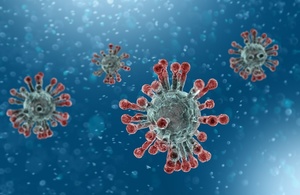Supporting food security and strengthening health systems
Thank you Chair, Excellencies.
At the 54th Session of the Commission on Population and Development, we have come together to discuss the critical theme of “Population, Food Security, Nutrition and Sustainable Development.” As the brunt of the covid-19 pandemic continues to ricochet around the world, we must ensure women, adolescents girls, children and marginalised populations are prioritised in the response and recovery. Today, I plan to set out the risks they face of food insecurity and undernutrition, the critical importance of the full realisation of sexual and reproductive health and rights, and how we plan to carry forward momentum on this agenda over the coming year.
According to the Secretary General’s Report on the Impact of COVID 19 on the Implementation of the ICPD, there were nearly 690 million people [8.9 per cent of the global population] undernourished prior to the pandemic. The UN estimates that COVID 19 will add up to 132 million more to that alarming figure. We know that conflict, economic crisis and climate change are driving food insecurity, and have been further exacerbated by COVID 19. The international community must take action to address the root causes of food insecurity and ensure the nutritional needs of women, adolescents and girls in COVID 19 response and recovery plans. We must ensure women and girls have a critical role as leaders and decision makers when developing and implementing these response and recovery plans.
As the main intergovernmental forum following up on ICPD, we must also examine the impact that COVID-19 has had on the fulfilment of sexual and reproductive health and rights. In a recent estimates released by UNFPA highlight that disrupted contraceptive use, has resulted in nearly 1.4M unintended pregnancies in 2020. We urge Member States to build upon their commitments made in the Universal Health Coverage Political Declaration and prioritising maintaining all essential health services, including sexual and reproductive health services. Safe abortion services are at particular risk during the pandemic. Even where safe abortion is legal and included in the essential package of health services, many women are struggling to access safe abortion services. Member States should consider prioritising strengthening health systems, and explore the use of innovative delivery models like telemedicine to improve access to and to achieve the full realisation of sexual and reproductive health and rights.
There are several key milestones over the next year where we have an opportunity to deliver on these priorities. First, the UN Food Systems Summit hosted by Italy. We welcome the much-needed focus it brings to the development of sustainable food systems and reversal of the current negative progress in achieving SDG 2 on Zero Hunger. In particular, we welcome commitments made to build resilience to vulnerabilities, shocks and stresses and boost low-carbon, climate-beneficial production at scale. We hope that the Summit will result in concrete and actionable commitments by a diverse group of stakeholders.
Following the Summit, COP 26 is the next opportunity to convene to make substantial, tangible process towards ending food insecurity. We cannot tackle climate change effectively without placing inclusion and gender equality front and centre of our climate action. We will champion inclusivity throughout our COP Presidency. We will use our position to amplify the voices and solutions of women, adolescents and girls and those most marginalised, empowering them as decision-makers, advocates and leaders. We will seek to address and champion their needs and priorities in the run up to, and at COP26 itself.
Thank you Chair, Excellencies for your time and for the important discussions held this week.

